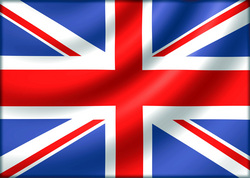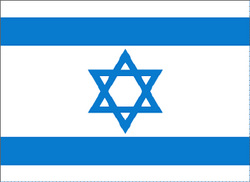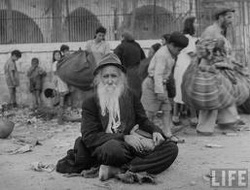British Mandate of Palestine (1918-1948)

Following World War I, the League of Nations (that eventually became the UN) trusted Britain with the territory now known as Israel, after it was taken from the Muslim Ottoman Empire. Since the Ottomans had control of the region for decades, there was a large population of Muslim civilians living there. This later caused religious tension, because the Jewish population and the primarily Muslim Palestinians did not get along well. They often fought because of religion, such as when conflict broke out after Jews and Muslims argued to who had the right to religious practice at the Wailing Wall in Jerusalem. It is holy to both religions, and the religions have many similarities, but still tension and conflict broke out.
During World War I, Great Britain made agreements that promised that they would support the formation of a Palestinian state if Palestinians contributed to the Allies' military. However, the British did not live up to these agreements and did not give them the right to govern themselves, and instead gaining the land. The Palestinians were also angered by the support of a Jewish homeland in Palestine by the British government. They felt that this threatened their existence of a Palestinian state. More Jews immigrated into Israel, even before World War II, which caused tensions to rise as they bought out land and interacted with neighboring Palestinians. As the two different cultures started to clash, violence broke out occasionally. Many Muslims killed and destroyed Jewish communities, and Jews were in some ways isolated from the rest of Palestine and were continually persecuted, just as they had been in Eastern Europe.
However, it was not until after the Holocaust that the Zionist movement increased to include most Jews throughout the world, especially those surviving the Holocaust. Jewish immigration also increased, and because of the rising violence and nationalist movements, Great Britain proposed to the League of Nations that a partition plan be put into effect. The plan was eventually accepted and Israel became a nation alongside Palestine, whose inhabitants were not happy with the results of these events.
During World War I, Great Britain made agreements that promised that they would support the formation of a Palestinian state if Palestinians contributed to the Allies' military. However, the British did not live up to these agreements and did not give them the right to govern themselves, and instead gaining the land. The Palestinians were also angered by the support of a Jewish homeland in Palestine by the British government. They felt that this threatened their existence of a Palestinian state. More Jews immigrated into Israel, even before World War II, which caused tensions to rise as they bought out land and interacted with neighboring Palestinians. As the two different cultures started to clash, violence broke out occasionally. Many Muslims killed and destroyed Jewish communities, and Jews were in some ways isolated from the rest of Palestine and were continually persecuted, just as they had been in Eastern Europe.
However, it was not until after the Holocaust that the Zionist movement increased to include most Jews throughout the world, especially those surviving the Holocaust. Jewish immigration also increased, and because of the rising violence and nationalist movements, Great Britain proposed to the League of Nations that a partition plan be put into effect. The plan was eventually accepted and Israel became a nation alongside Palestine, whose inhabitants were not happy with the results of these events.
Formation of Israel (1948)

After World War II, surviving Jews felt the need for an identity and a home to return to, because in Europe they feared the antisemitism that continued in many communities. Survivors had no identities, no property, and no home. They looked to the ancient land of Israel (known as the Palestine at the time), the promised land of the bible that contained Jerusalem, the holy city to the Jews. At the time, Palestine was occupied by the British, who allowed extremely low amounts of immigration. Secret boat voyages of survivors were arranged by Jews already living in Palestine. However, because of the ancient Diaspora, Unfortunately, the British often intercepted these boats of homeless holocaust survivors, some of which contained around 4,500 passengers, and either denied them access to the region or detained them. The Palestinians, however, were not happy with the Jewish settlers entering the region. They viewed the Jews as a threat to their attempt to establish their own state, independent of British rule, and had attempted to overthrow them in the past. The Jews, however, had not simply been interested in settling in Israel because of the Holocaust. A group of people known as Zionists, who believed that a Jewish nation should be established in the ancient land of Israel, had attempted to organize this in Israel for over 50 years for many reasons: some political, some religious, and others as well. However, as Jews slowly immigrated in both legally and illegally, against the Palestinian's demands, the Palestinian resisted more and more. Smaller militias and militant groups emerged to fight against the Jews. There were even "holy assassins," in Jerusalem that killed anybody who sold land to Jews, eliminating the areas where Jews could settle. As tension broke into smaller acts of violence, the British did little to nothing to stop the violence. The British agreed to leave the area after the UN decided on the UN partition plan that split the region into two nations: Palestine and Israel. The British withdrew slowly from the region, and on May 14, 1948, Israel was declared a nation. This was enough to spark The War of Independence that resulted in years of military conflict, because the Palestinians and Arabs were frustrated that after all the resistance, a Jewish state had emerged anyways.

